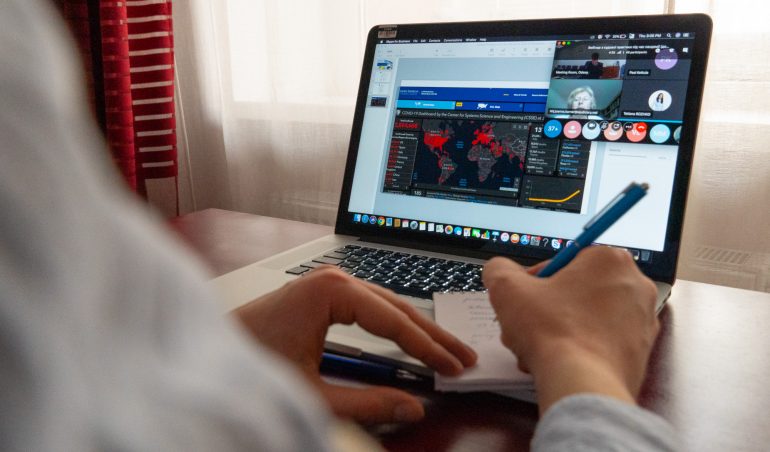Justice in a time of pandemic: EU judges share judicial practices with Ukrainian peers
April 17, 2020
Justice should be delivered and access to justice provided under any circumstances. This was the main message from a webinar organised by EU Advisory Mission experts in Odesa yesterday, an event that brought together almost 50 participants from across the EU and Ukraine.
The top-level judiciary experts – namely judges from Italy, Germany, the United Kingdom and Finland – discussed with Ukrainian colleagues the challenges they face amid the Covid-19 pandemic, specifically what measures can be taken to adapt to the restrictions in their courts and judicial practice. A special focus was on digital solutions to court hearings, such as video conference and its compliance with personal data protection rules. The event aimed to assist Ukrainian judges from 11 courts in Odesa and Mykolaiv region to deliver timely justice under the quarantine restrictions currently imposed in Ukraine.
The Italian judge Roberto Venditti, based in one of the most COVID-19 effected areas in Italy, explained that 80% of Italian judges now work remotely. He said that Italian judges, prosecutors and lawyers recognised the effectiveness of video-conferencing in certain criminal cases, but if needed to attend court then they work in shifts, thus reducing the chances of virus spread.
“The Coronavirus pandemic puts the entire Italian judiciary in front of an unprecedented task: delivering justice and ensuring the protection of fundamental rights, while ensuring that those involved in the proceedings are not exposed to any risks for their safety and health,” he said.
Judge Dr Christine Walter from Germany does shifts in her court to prevent contact between separated groups of judges. But despite also working remotely, any use of online video conferencing tools are not admissible in Germany because of personal data protection restrictions.
Judge Pasi Kettula from Finland said that video-conferencing in courts is applied in his country, but mainly in civil cases following the consent of all sides. With restrictions for mass gatherings still in place, all public hearings in courts are cancelled for the moment.
Jonathan Ratel, EUAM Senior Advisor on Prosecutions, observed that the British courts are actively promoting the use of digital tools; however, these methods not always agreed by legal counsel and, in particular, in the conduct of criminal cases.
The Deputy Head of Odesa Appeal Court, Judge Andriy Drishluk, remarked after yesterday’s webinar: “I want to thank EUAM for organising this webinar, which provided a lot of practical information. We try to do our best to deliver justice with respect to human rights. There is a number of measures taken already to have our work to continue in a safe and effective way, but the experience from our EU colleagues shared today was very valuable.”
“In these difficult times, it is very important to have the support of colleagues from other countries, who despite the difficult situation in their home countries continue to work, as do Ukrainian judges,” said Judge Tetiana Shavyrina from Ochakivskyi city district court of Mykoliav region. “It is important, however, that the solution here depends on the independence of the judiciary and within the discretion of courts.”



